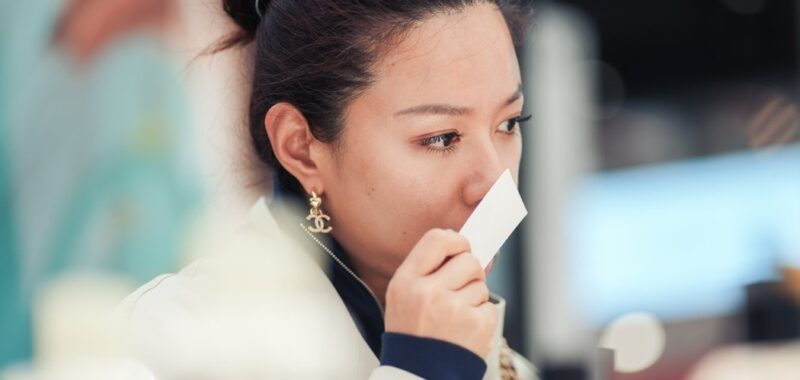While most major luxury groups across all sectors are currently experiencing a decline in sales in the Chinese market, the perfume market is expected to grow by around 14%, reaching EUR 5.8 billion by 2028, according to US consulting firm Frost & Sullivan. Another feature of the Chinese perfume market is a less than 5% penetration rate and a growing number of enthusiasts among Generation Z (19-24-year-olds).
Volatile players
The market remains dominated by Western brands, including in the high-end perfume segment. “Jo Malone, Tom Ford, Maison Margiela, Byredo and Diptyque are among the most popular niche brands in 2024. Each has clearly and distinctively found their consumer base, sustainably establishing iconic perfumes for anyone exploring the world of fragrance, even beginners,” says Dao Nguyen.
She highlights that particularly dynamic niche brands coexist and compete fiercely with mainstream brands, while new players are constantly entering the market, such as the Chinese cosmetics brands Proya, Kans and Mao Geping, which recently launched their own fragrances.
‘”We can therefore see that competition is intensifying, resulting in high volatility among the players involved,” analyses Dao Nguyen. Local brands continue to gain momentum, innovate and reinvent the olfactory experience. Moreover, while price is an advantage, especially among young entrants, it should not overshadow the presence and success of brands such as Melt Season, Documents and Qi Cun Jiu (七寸九), which are comparable in price to international niche brands.
According to Lishi Ni, the 30-something founder of high-end brand Melt Season, who spoke to the Chinese press, the perfume market has long been controlled by Western brands. In the high-end perfume segment, where prices exceed 1,000 yuan (123 euros), the market is almost entirely dominated by foreign companies. However, she believes that these perfumes have rarely taken Chinese people’s customs and traditions into account and have failed to meet their emotional needs, leaving a gap in the domestic fine fragrance market for a long time.
An emotional Support
According to the 2024-2025 study by China Perfume Industry Research and Consumer Insights published by iiMedia Research, 64.2% of users say that their daily perfume consumption is more focused on pleasure and the pursuit of emotional regulation. Perfume consumption patterns are diversifying and are no longer limited to social and professional occasions. For example, perfumes with soothing properties may be sought after to enhance the sense of ritual and personal pleasure when used, thereby meeting consumers’ desires for emotional experiences and improved quality of life.
Patrick Hui, founder of the Hong Kong perfume boutique, Scented Niche, told the South China Morning Post that in mainland China, the perfume market follows its own trends. Amber was in vogue in 2018, while Indian tuberose was popular in 2019 and 2020. Since then, floral notes have been favoured. More recently, there has been a shift towards simpler fragrances. In 2024, woody notes have taken the lead, with cedarwood at the forefront, he explains. Unisex fragrances have also gained popularity, with women opting for drier, woodier, and spicier scents.
Individuality
For Dao Nguyen, niche perfumes meet a desire for self-expression and discernment that has emerged in a society traditionally more focused on the collective than the individual. The post-Covid context has also intensified this phenomenon. “Chinese brands naturally benefit from cultural proximity and are extremely responsive by nature. But it’s their creativity and ability to innovate that I believe, will give them a real competitive edge,” she emphasises.
Western beauty giants want to join the movement. L’Oréal announced in early 2024 that it had acquired a minority stake in Chinese premium perfume brand To Summer, two years after investing in the young brand Documents – which has since seen Chinese beauty group Ushopal join its ranks of shareholders. At the end of 2023, Estée Lauder acquired a stake in Nishi Li’s Melt Season brand.
Last year, International Flavors and Fragrances (IFF) opened its largest Asian innovation centre in Shanghai, a 16,000-square-meter facility named the Shanghai Creative Center. Meanwhile, Givaudan announced the launch of L’Appartement 125, a state-of-the-art perfume creation centre located in the heart of Shanghai. According to the company, “this innovative space is designed to foster co-creation between Givaudan’s talented perfumers and Chinese brands, setting a new benchmark for perfume development in the region.“

